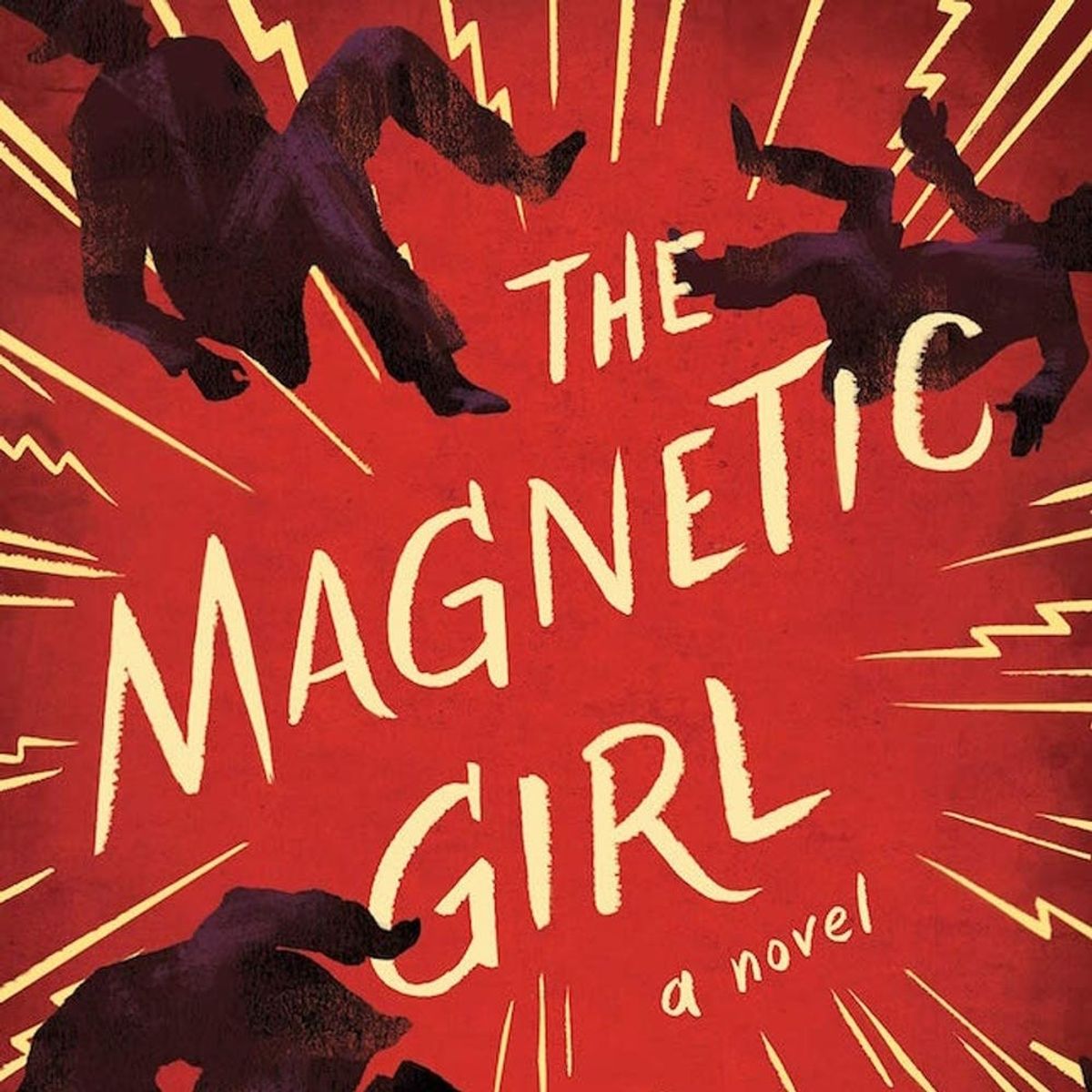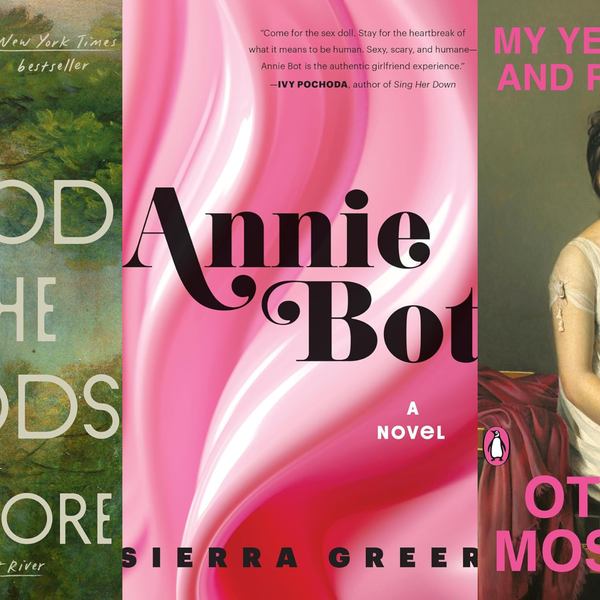The women in these new books have a magnetism that’s hard to deny.
3 New Books About Magnetic Women

By Ilana LucasApr 14, 2019
Ilana Lucas
Ilana is an English professor, theatre consultant and playwright based in Toronto, Canada. When she’s not at the theatre or insisting that literary criticism can be fun, she’s singing a cappella or Mozart, occasionally harmonizing with the symphony, or playing “Under Pressure” with her rock handbell group, Pavlov’s Dogs.
These unconventional, storytelling women in this week’s book club will attract and hold your attention. Are they literally magnetic, or does the world just revolve around them? Feel the pull of these three unique voices as they update historical narratives with their own unique spin; let them mesmerize you.
<em>The Magnetic Girl</em>
 “Back then I believed I was magic. My power appeared as a bodily urge, like needing to use the privy or sucking in my stomach to button up a dress that no longer fit. I loved my secret talent so much that I gave it a name: captivation. I sensed more than most people, too, without using words. I was the only person in my family who understood my brother when he spoke, although Momma tried her best. Leo was my center. In his eyes, my most secret faults were forgiven. And I wanted to change his life. Not long before the incident with the fox, my body had turned into something I couldn’t control. My feet tangled when I walked. My bones ached in my sleep, thickening inside my flesh. Sometimes they scalded like steam, other times they cramped with ice.”
“Back then I believed I was magic. My power appeared as a bodily urge, like needing to use the privy or sucking in my stomach to button up a dress that no longer fit. I loved my secret talent so much that I gave it a name: captivation. I sensed more than most people, too, without using words. I was the only person in my family who understood my brother when he spoke, although Momma tried her best. Leo was my center. In his eyes, my most secret faults were forgiven. And I wanted to change his life. Not long before the incident with the fox, my body had turned into something I couldn’t control. My feet tangled when I walked. My bones ached in my sleep, thickening inside my flesh. Sometimes they scalded like steam, other times they cramped with ice.”
<em><a href="https://www.amazon.com/Naamah-Novel-Sarah-Blake/dp/0525536337" target="_blank">Naamah</a></em>
 Most of us have heard the biblical story of Noah and his family building the enormous ark that would save them and let humanity start over after the Great Flood. Few have considered what Noah’s wife felt about it all. Blake’s feminist novel brings Naamah to richly detailed, beautiful life. Headstrong, inquisitive, sensual, and anything but subservient, this Naamah is an equal to her loving husband. Grateful but deeply angry, faithful but suspicious, she mourns leaving behind the life she knew, including her lover, the widow Bethel. She also knows it’s up to her and her family to move forward.
Most of us have heard the biblical story of Noah and his family building the enormous ark that would save them and let humanity start over after the Great Flood. Few have considered what Noah’s wife felt about it all. Blake’s feminist novel brings Naamah to richly detailed, beautiful life. Headstrong, inquisitive, sensual, and anything but subservient, this Naamah is an equal to her loving husband. Grateful but deeply angry, faithful but suspicious, she mourns leaving behind the life she knew, including her lover, the widow Bethel. She also knows it’s up to her and her family to move forward.
<em><a href="https://www.amazon.com/Optic-Nerve-Maria-Gainza/dp/1948226162" target="_blank">Optic Nerve</a></em>
 The unnamed Argentinian woman who narrates Gainza’s debut novel loves, lives, and breathes art. Buenos Aires is her home, and, afraid to fly, she becomes intimately connected to the city where she spends her life. Readers will become equally intimately connected to her mind, from where we view her world as a kind of gallery walk, with memories becoming exhibitions, placed together by theme or whim rather than by chronology. These crystalline moments of her life are set off against stories from art history, artists, and art becoming a mirror for self.
The unnamed Argentinian woman who narrates Gainza’s debut novel loves, lives, and breathes art. Buenos Aires is her home, and, afraid to fly, she becomes intimately connected to the city where she spends her life. Readers will become equally intimately connected to her mind, from where we view her world as a kind of gallery walk, with memories becoming exhibitions, placed together by theme or whim rather than by chronology. These crystalline moments of her life are set off against stories from art history, artists, and art becoming a mirror for self.
The Latest
Make Your Inbox Your Happy Place
Get freebies, inspo, & more delivered to you.



















